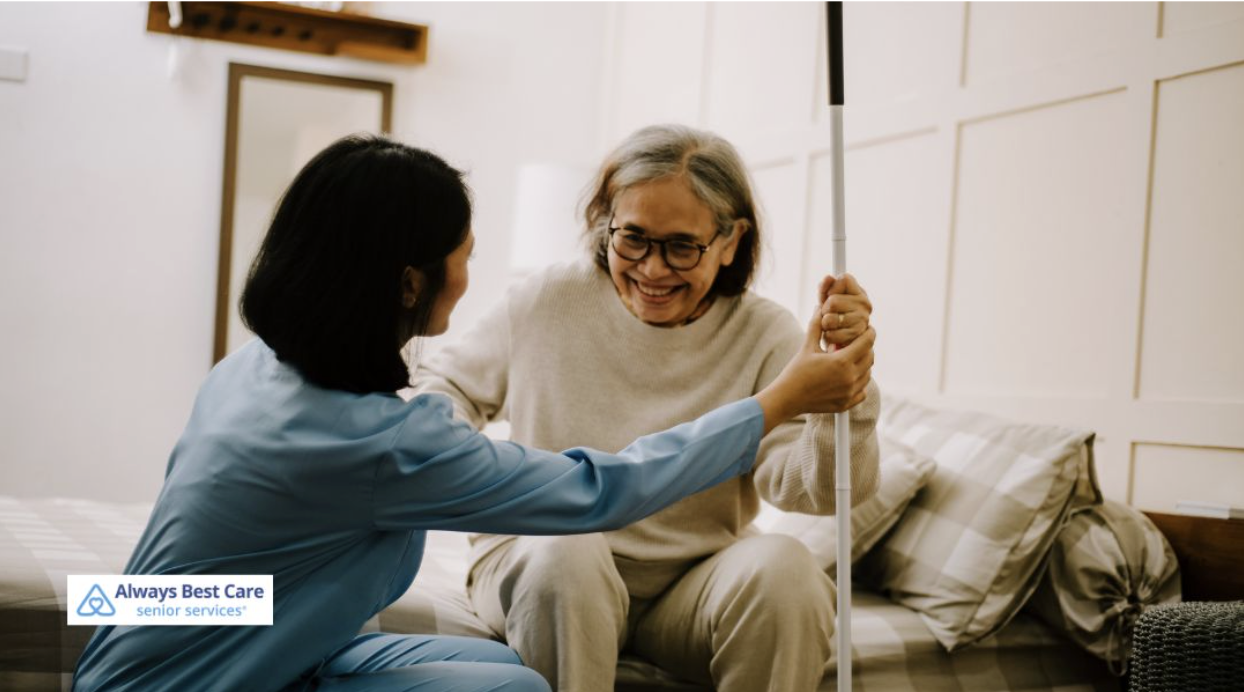Supporting Seniors’ Emotional Well-Being: Understanding Behavioral Health Needs in Princeton, NJ

Let’s face it, aging isn’t just about aches and pains or keeping up with prescriptions. There’s a whole emotional side to getting older that sometimes sneaks up on us.
At Always Best Care of Princeton, we know a cheerful heart can make all the difference, and supporting seniors’ behavioral health is front and center in what we do.
What you will learn:
- The importance of behavioral health for seniors and how it impacts overall emotional and physical well-being.
- Key warning signs that indicate a need for emotional support in seniors, such as changes in mood, sleep, or social activity.
- Practical ways families can help support seniors’ emotional health through social interaction, exercise, and open communication.
- How Always Best Care of Princeton provides personalized care to improve seniors’ behavioral health, including companionship, routine support, and memory care services.
Table of Contents
What’s Behavioral Health, Anyway?
Behavioral health is all about how our feelings, thoughts, and actions shape our well-being.
For seniors, this can mean a lot more than just “feeling blue”; it’s about finding joy, keeping spirits high, and handling those curveballs life throws as we age.
Here’s what behavioral health covers for seniors:
- Adjusting to loss, whether of a spouse or close friends
- Coping with depression, anxiety, or loneliness
- Facing memory challenges like dementia
- Managing the stress of health changes or shifts in independence
A strong behavioral health foundation helps folks stay independent and bounce back from setbacks. When it’s shaky, everything from physical health to day-to-day happiness can take a hit.

Spotting the Warning Signs
Not all changes are just “getting older.” Some signs wave a red flag that a loved one’s emotional health might need a little TLC.
Watch out for these signals:
- Pulling away from family or skipping social activities
- Losing interest in hobbies or daily routines
- Big changes in sleep or appetite
- Mood swings, irritability, or persistent sadness
- Forgetting medications or skipping self-care
- Confusion or sudden disorientation
Sweeping these symptoms under the rug? Not a great idea. They might point to underlying behavioral health concerns that deserve attention.
Why Behavioral Health Is a Big Deal for Physical Health
Here’s a truth bomb: The mind and body are joined at the hip. When seniors struggle emotionally, it’s not just their mood at stake; physical health can spiral too.
Emotional struggles may trigger:
- Slower recovery after illness or surgery
- Increased risk of heart disease or stroke
- Harder times managing chronic conditions like diabetes or high blood pressure
- Weaker immune systems
Support for emotional health isn’t just about feeling better, it’s about living longer and stronger.

Helping Hands: How Families Can Pitch In
Families in Princeton, NJ, play a key role in supporting seniors’ emotional well-being. Sometimes, little gestures go a long way.
Here’s how you can help:
1. Encourage regular chats, Face-to-face, phone calls, or even video calls.
2. Support gentle movement or exercise to boost mood and energy.
3. Help spark interest in hobbies or creative activities.
4. Be open about feelings; listening without judging is worth its weight in gold.
5. Schedule regular check-ins with healthcare providers.
If things feel overwhelming, professional support might be the ticket to help seniors thrive emotionally and socially.
How Always Best Care of Princeton, NJ Supports Behavioral Health
We at Always Best Care believe every senior deserves to be seen, heard, and supported. Our caregivers are all about providing companionship, structure, and connection—right in the comfort of home.
Here’s what we offer:
- Companionship to ease loneliness and boost spirits
- Structured routines for stability and a sense of security
- Medication and appointment reminders to keep health on track
- Engaging conversations and activities to keep minds active
- Communication with family and health professionals about changes in mood or behavior
If your loved one is facing dementia or Alzheimer’s, our memory care services bring compassion and comfort, aiming to reduce anxiety and create a warm, personalized environment.

Frequently Asked Questions
Q: How do I know if my loved one needs behavioral health support?
A: Look for changes in mood, energy, appetite, sleep, or social involvement. If you spot two or more warning signs, it’s wise to consult a professional.
Q: Does Always Best Care offer emotional support as part of its services?
A: Absolutely. Companionship, conversation, and emotional support are woven into everything we do; our caregivers aren’t just helpers; they’re friendly faces and listeners.
Q: Can behavioral health issues affect physical health?
A: Yes, poor emotional health can slow recovery, worsen chronic conditions, and even affect immunity.
Q: What if my loved one has dementia or memory problems?
A: We provide specialized memory care to help manage anxiety and keep routines comfortable and familiar.
Q: How can families in Princeton, NJ get started with Always Best Care?
A: Just give us a call for a free care consultation; our coordinators are ready to listen and help create a personalized care plan.
Support Your Loved One’s Emotional Well-Being – Contact Always Best Care of Princeton Today!
Emotional well-being isn’t just a side note; it’s a key piece of healthy aging.
At Always Best Care of Princeton, we’re here to support seniors’ behavioral health, helping them stay resilient, connected, and full of life.
If you notice changes in your loved one’s mood or behavior, reach out at (609) 455-2886. Together, we can make sure every senior feels valued and cared for, body, mind, and spirit.





